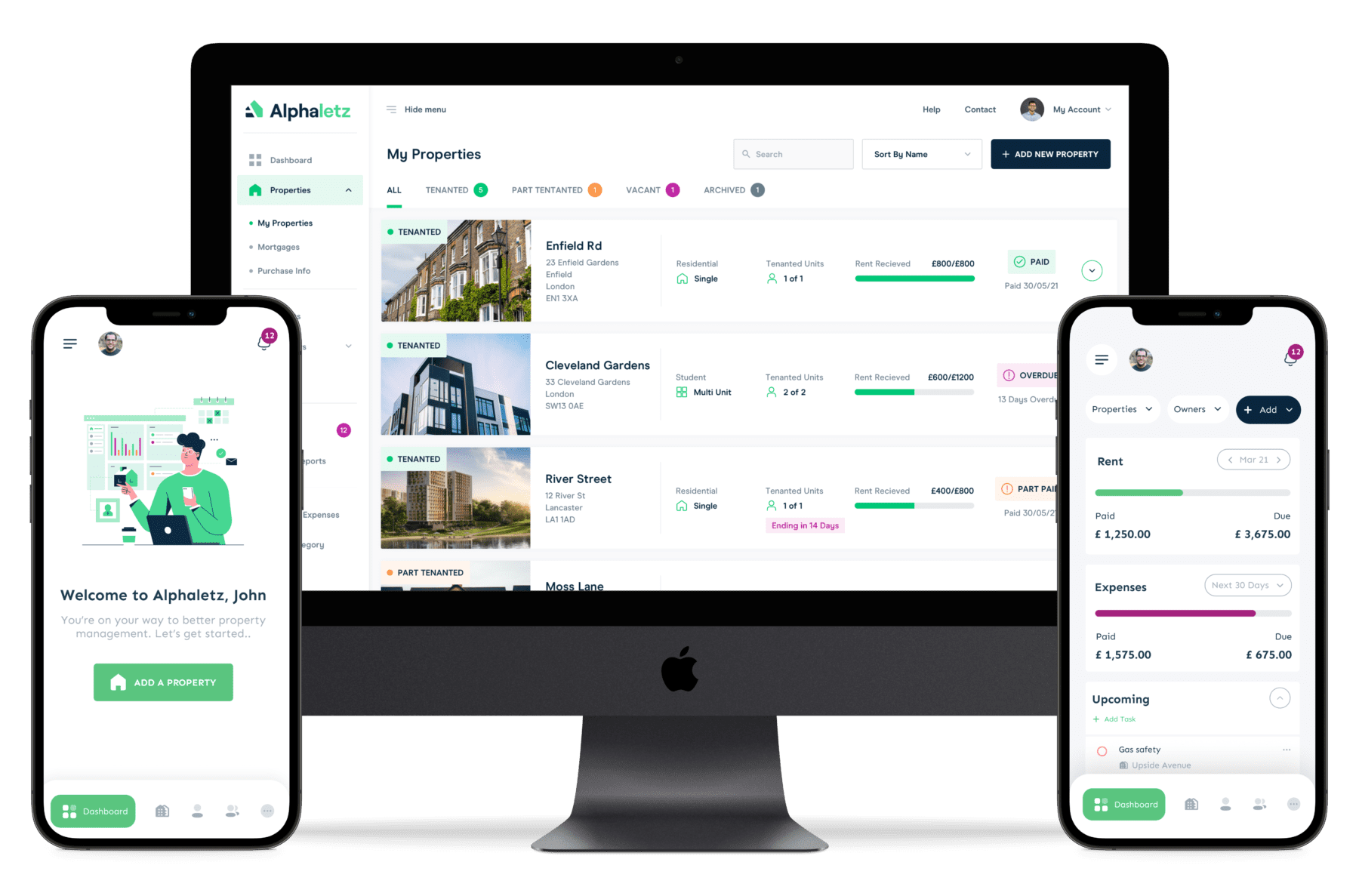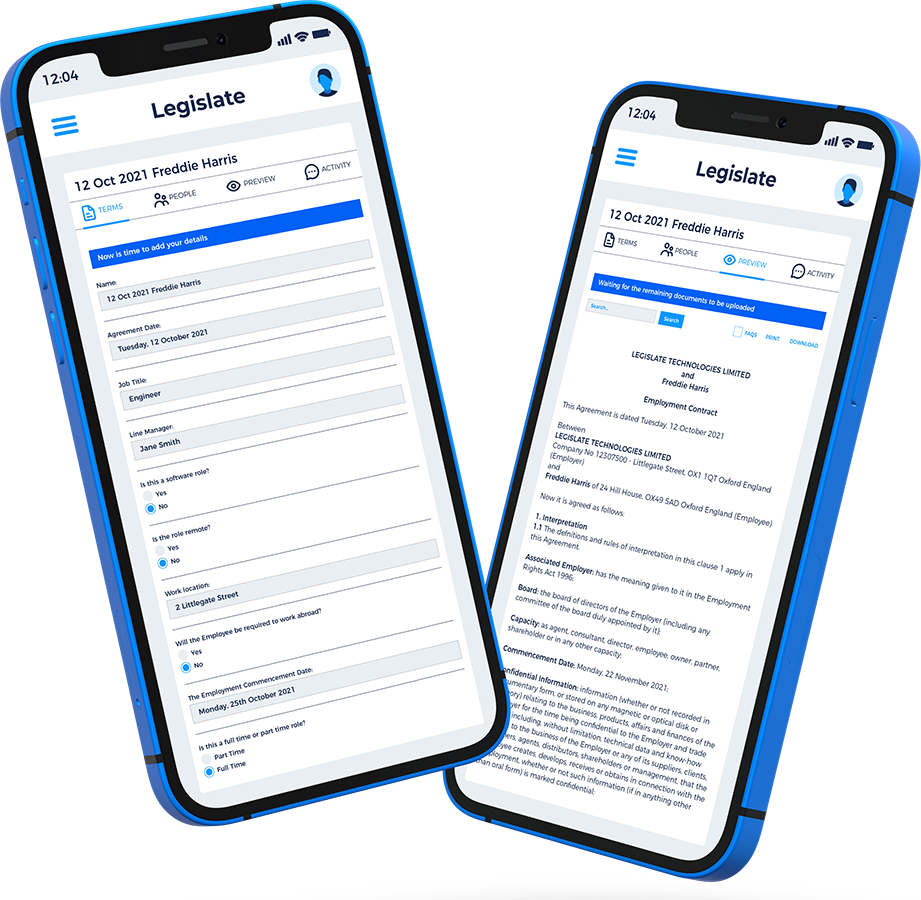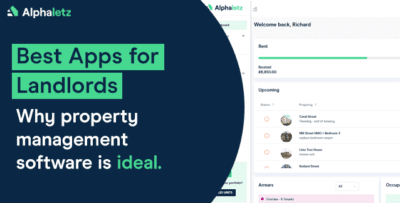When a landlord or letting agent rents out a property, they must be aware that tenants will want or require certain documentation.
If you don’t give your tenants the paperwork they ask for, you might face financial penalties.
Using outdated or unenforceable contracts may put your property business in violation of the law and create unwanted and unpleasant tension with your renters.
This article discusses the 6 Key Documents Landlords & Letting Agents Should Have Prepared when they are taking on a new tenant.
So without further ado, here’s an index of what this blog will cover. You can click on each bit to take you straight there!
1. Assured Shortholder Tenancy Agreement (or an AST.)
You’ll want to ensure that you have a tailored, up-to-date, and compliant tenancy agreement that outlines the relationship between landlord/ agent and tenant(s).
There are different types of tenancy agreements depending on the property, the number of tenants and their relationships to one another.
Tenants’ deposits must be protected in a government-approved scheme, and some landlords might need to register for a licence if they let a House in Multiple Occupation (HMO).
An AST agreement is a type of shorthold tenancy that typically lasts for 6 or 12 months with the option to become rolling periodic tenancies.

Whilst a written and signed tenancy agreement isn’t mandatory creating a clear and robust tenancy agreement that outlines your rights and obligations is a simple and effective way to protect your interests (and avoid unnecessary conflict with tenants.)
An AST agreement will specify a host of information relating to the property.
For example, whether tenants have access to shared facilities, if they need to pay for council tax and other utilities, and whether there are any permitted occupiers such as family members.
The tenancy agreement will also detail the letting agent if the landlord has engaged one to manage the property on their behalf.
2. Guarantor Agreement.
A guarantor is a person who will financially guarantee the rent of a tenant if the tenant can’t make the payment.
A landlord might ask for a guarantor where they consider it more likely that the tenant could default on rent payments.
For example, if they don’t have a fixed income or are a student.
A guarantor will likely be required to enter into an agreement with a landlord so that the landlord has a claim against the guarantor if the tenant enters arrears.
Due to the lack of consideration, the agreement will have to be signed and witnessed as a deed.

3. How to Rent Guide & Safety and Energy Certificates.
It is a legal requirement to provide tenants with a copy of the Government’s How to Rent guide.
The guide explains the nature of an AST and its key terms so that the tenant can understand it.
Alongside the How to Rent Guide, landlords must also supply the tenant with an Energy Performance Certificate (EPC), Electrical Installation Condition Report (EICR) and gas safety certificate.
Ensuring that your tenant has recognised receipt of these documents (perhaps by signing them) is particularly important as a catalogued audit trail will be helpful to you if disputes arise.
Not providing these documents to tenants restricts you from serving a section 21 notice to evict tenants at the end of their tenancy.

Try Alphaletz free!
An easier way to manage your properties, along with associated contracts and documents.
Join 1000s of UK Landlords today by making the switch to cloud based property management software.



Try Alphaletz Free!
An easier way to manage your properties, along with associated contracts and documents.
Join 1000s of UK Landlords today by making the switch to cloud based property management software.
4. Information About Deposits.
Commonly, tenants have to pay a deposit as security against damage they might cause.
The basic idea is that landlords can use this money to repair damage caused by tenants.
However, the tenant’s deposit money must be handled in a particular way, and landlords or agents must communicate to the tenant how they’ll handle the deposit.
The deposit, capped at 5 weeks’ rent, must be protected in an approved tenancy deposit scheme within 30 working days of receiving it.
Crucially, tenants must be notified of details of the scheme.


5. Rent Increase, Rent Arrears or Tenancy Amendment Letters.
Things change from time to time, so you want to ensure you have a host of letters that can help you communicate with your tenant(s) in certain situations.
For example, depending on the agreement and the landlord’s preferences, a rental agreement can be modified to make amendments (typically with the tenant’s consent) or to increase the rent.
When a tenant is in arrears, a rent arrears letter can be created to remind the tenant of their obligation to pay rent and seek clarity on when the arrears will be repaid.
Having access to these sorts of letters when you take your tenant on ensures that you have control, having foreseen all possible circumstances.
6. Notices.
Similarly, it’s wise to have notices available when taking on a new tenant.
At the very least, you should understand how to serve notices and what notices you can serve in different circumstances.
The Government regulates notices, and irrespective of what notice you provide in your tenancy agreement, you’ll need to comply with the regulatory framework.
For example, during Covid-19, the Government introduced temporary changes to notice lengths.
To effectively evict a tenant under the terms of an agreement, landlords will typically serve a section 21 or section 8 notice.
A section 21 eviction notice can be used when the grounds for eviction are as per the requirements detailed by the latest government legislation.
Furthermore, a landlord must be familiar with the required notice periods for section 21 and section 8 notices for different circumstances and must not make mistakes on this document.
Conclusion.
You must provide tenants with a whole host of information when renting out a property.
Ensuring you have all of these documents and agreements prepared is a sure way to avoid unnecessary conflict and allow you to mediate disputes.
When it comes to complex filing systems, it can be very easy to lose or have a hard to find documents related to particular properties.
Alphaletz is a property management platform that allows you to intelligently manage your properties with ease.
It also makes finding documents much easier too as you can store documents related to each property so they can be easily found.
Try Alphaletz free today with a lifetime free trial by clicking the button below.
*The opinions on this page are for general information purposes only and do not constitute legal advice you should rely on.



Have you tried Legislate?
Legislate is a software platform that allows you to create and manage lawyer-approved agreements which are tailored to your specific requirements.
With all your contracts and documents stored in one place, Legislate makes managing these agreements post-signature very easy.



Have you tried Legislate?
An easier way to manage your properties, along with associated contracts and documents.
Join 1000s of UK Landlords today by making the switch to cloud based property management software.


